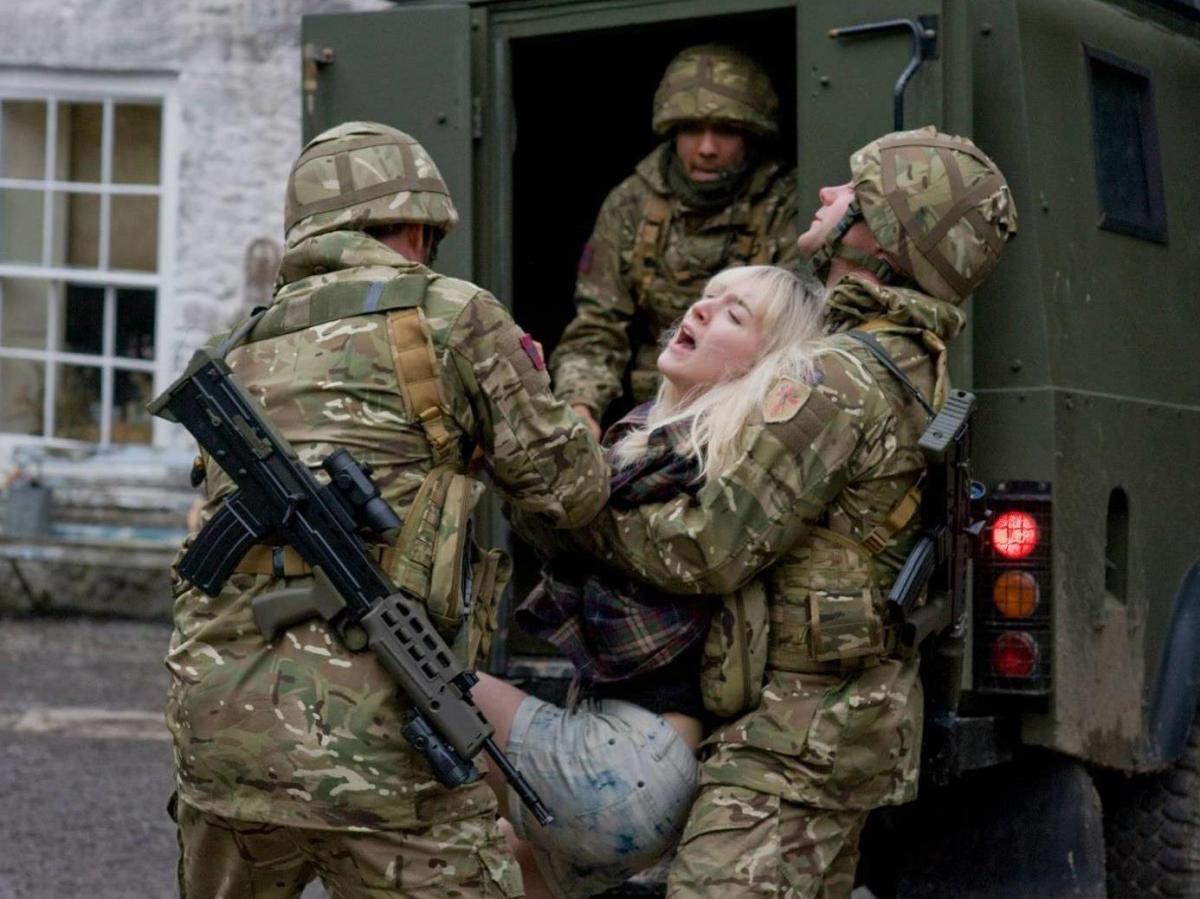In How I Live Now, being a teenager is the end of the world, and its teenage protagonist faces the end of the world. In director Kevin Macdonald (Marley) and writers Jeremy Brock (The Eagle), Tony Grisoni (TV’s Southcliffe) and Penelope Skinner’s (Fresh Meat) adaptation of Meg Rosoff’s young adult novel of the same name, coming of age coincides with the coming of the apocalypse.
Sullen and snarling, Daisy (Saoirse Ronan, The Host) travels from New York to rural Britain riddled with unhappiness, her father’s absence so keenly felt that the crumbling nation around her barely raises a passing interest. The hospitality of her cousins – Edmond (George MacKay, The Boys are Back), Isaac (Tom Holland, The Impossible) and Piper (Harley Bird, Blueberry) – similarly falls upon deaf ears, the visitor all too happy to dwell in her own realm of festering discontent; then, without warning, Eddie emerges as her kindred spirit.
Alas, their connection is not the only sudden development, with political instability soon escalating into military combat, and the quiet farmland soon swimming with an army engaged in warfare. Swiftly separated from her love and ferociously fighting for her life, Daisy has only one mission: to return to her new home and reclaim her hero. The trek, a fractured journey filled with the most despicable, irredeemable and opportunistic of behaviours in others, proves more than just a quest to survive.
The source material may have been aimed at youthful audiences, and its dystopian future may be tempered with the undercurrent of affection so commonly matched to the genre; however How I Live Now doesn’t shy away from the pervasive darkness in its midst. As the ordinary explodes into anarchy, the too-neat leanings of Tomorrow When the War Began are absent; though predicated upon a stylised scenario, the sheen of The Hunger Games is nowhere to be seen. Instead, it is the unpleasant reality of Cate Shortland’s Lore that earns recollection, as a tentative status quo is torn away in messy strips – first by circumstances beyond the characters’ control, then by deeds of determination and desperation.
And yet, Macdonald never forgets the age of his protagonist, or Daisy and Eddie’s limited life experience, his direction grounded in the uncertainty of their perspectives. Theirs are constantly shifting but easily distracted mindsets, and the film – and Franz Lustig’s (Problema) cinematography and Jinx Godfrey’s (Shadow Dancer) editing – does the same. From the earned warmth of their countryside courtship, pausing and rejoicing in raw emotion, to the frenzy of the confused terror, slipping into violence and tension, the aesthetics and filmmaking mechanics of the World War III setting presented seethe with immediacy.
Fittingly, most elements of How I Live Now waver, again in the manner of its target viewers: the moody tone rifts as it shifts, the visuals both engage and interrupt, and the varied soundscape marries contrived voiceover with meticulous effects. Decidedly less shaky are the performances, Ronan recalling her strong roles in Hanna and Atonement in adding texture to her initially spiky character, and MacKay complementing his stunning turn in For Those in Peril with something more accessible. Indeed, the excellent acting offers a rare surprise in a film filled with the expected, yet still affecting and effective. Plunging impressive portrayals into subjectivity and sympathy in its existential, apocalyptic, amorous plight, How I Live Now approaches the end of the world with confidence, but doesn’t change it.
Rating: 3.5 out of 5
How I Live Now
Director: Kevin Macdonald
UK, 2013, 101 mins
British Film Festival
November 19 – December 8
http://britishfilmfestival.
In general release: November 28, 2013
Distributor: Madman
Rating: MA





